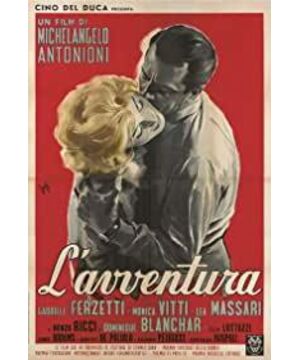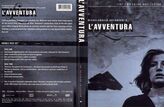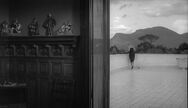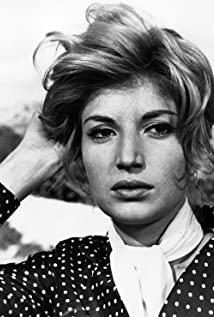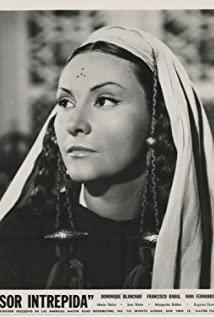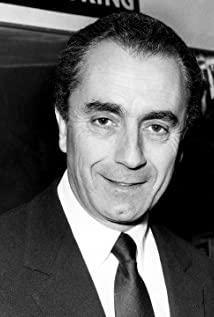“Have you noticed? No one is watching the sunset anymore, maybe city people are like that. My job Bring me to the country. My favorite is watching the sunset."
Then the woman said:
"Language never becomes a part of you like a sound, like the sea. In the end you can't hear it because it has become your constant listening The words
that arrive." The man said, "It's strange. We all like to be printed in other people's minds."
"Maybe this is the secret of love." The woman replied, and walked to the man, and the two stood face to face.
The man said: "I like your eyes, they are full of...sweet."
After that was a long, passionate kiss.
I don't like this paragraph very much, because it is too much like a drama, full of the sense of stage performance. Dialogue with literature and art, floating, without gravity, completely divorced from the natural logic of real life. But is it beautiful? Nature is beautiful, illusory and transparent metaphysical beauty.
This kind of metaphysics, I think, is the biggest feature of Antonioni's movies. In other words, it can also be called a representational theme first.
The so-called theme first, generally means that the political/ideological propositions of the work surpass the details of the content carried by the form, or that the work has a good eye and a low hand, and has no intentions and is more derogatory. But Antonioni’s theme is not lack of content, but logic, narrative, performance and other content requirements that Hollywood sees as the basic elements of modern movies have nothing to do with his film form. He pursues a pure philosophical space that is completely expressed through visual language.
In "Adventure", a man and woman in love haven't seen each other for a long time, and finally meet again to take a friend's boat out to sea on a small island. There are two other couples on the boat, Claudia, the woman's close friend, and the crew/waiter. The man and the woman quarreled on the island, the man Sanders fell asleep on the reef, and the woman Anna disappeared, inexplicably, without a trace. After that, there was a long search, looking on the island, like a suspense drama; looking back on the land, like a romantic drama; from desperately finding subconsciously not looking, it became a psychodrama. Until the last scene of the movie: the old brick building, the small balcony, the snow-capped mountains, the sky, the wooden chairs, and the backs of men and women standing and sitting, the overall directionality of the movie is still ambiguous, extending in all directions, but full of fog.
The narrative direction is not clear, there are advantages and disadvantages. The disadvantages are obvious. The broken logic and timeline make it difficult to track the psychological development of a story and the characters. The movie is boring and astringent, the climax is not obvious, the dialogue is inexplicable, and there are no details in the performance to dig into. The benefits are more concealed: the direction that extends in all directions creates a space of subtle possibilities for the film.
Let me talk about the possibilities first.
Literary works are more concerned with "ambiguity", which means that they allow different readers to make different interpretations. Those who like mountains can see mountains, and those who like water can see water. The author should not speak out and impose his own views on the characters and plot, causing the work to have only one direction (the only thing that goes in is called propaganda). This kind of interpretation space is realized by presenting the details themselves, not by commenting.
But there are many details. Choosing a certain detail and not choosing other details is a kind of judgment and explanation in itself. Logic is even more difficult to break. Once the logic of narration is entered, time and character's personality will lead the story to run wildly in a certain direction. The greatest possibility, there is only a blank paper, before everything has started, in front of the chaotic relationship and psychological state to abruptly stop. The artistic conception and white space in Chinese landscape paintings are both an expansion of space.
But "Adventure" did not choose to leave blank to open up possibilities. Antonioni chose to break the narrative logic and let the visual language speak for itself. Every time the story seemed to be heading in a certain direction, that direction was immediately abandoned. It does not explain whether Anna is missing, why she is missing, or how Claudia's mood changes. What is shown in the camera is only what she is looking for, the different environment she is in, and her emotions are repeated.
Among these different trends, the only constant constant expression is the relationship between the characters. If you think of the association as an axis, because of the uncertainty of the direction, this axis can extend to any angle. Bring these extensions together to form a space of possibility.
In the movie "Adventure", this possibility can be the advance and retreat of love, the destructive power of lust, the dislocation and alienation between people, or the emptiness and destiny of the mind with political criticism. Torrent. Because the space of the work is large enough, the viewer can give full play to their imagination, supplement the blank space outside the vision with their own experience and feelings, and see that a person is a movie. Of course, compared with narrative works, such films require the audience to make greater efforts and require spiritual and ideological participation in order to feel the great metaphysical charm.
But realizing such a metaphysics is not easy, not simply breaking the narrative logical time relationship. Don't forget, theme first is a metaphysical premise. Antonioni’s theme is not a political argument. I understand that what he is looking for in the film is more a philosophical concept, an emotional smell, a relationship between the world, the imaginary and the imaginary, and it is not attached to any details of real life. It's so floating that you can't touch it and you can't see it, but it has to be transformed into visual language, symbolic signs. This is a person's interpretation of life and destiny itself, it is poetic and cannot be copied.
In the sense of space in the movie, I admire Antonioni very much, he is a true master of visual language. I don't think any director can break the boundaries of film art as gracefully and freely as him, but I still can't like his works, those vain, ethereal, cloud-like huge sense of space and wind. If Hollywood movies are short stories, then Antonioni is prose, prose poem. They stretch to the sky, making me forget the sorrow and joy of the world, focusing on the rhythm of the wind, the fantasy of thought.
But I cannot do without the land after all. I think I still love this battered life destined to tragedy too much.
View more about L'Avventura reviews


